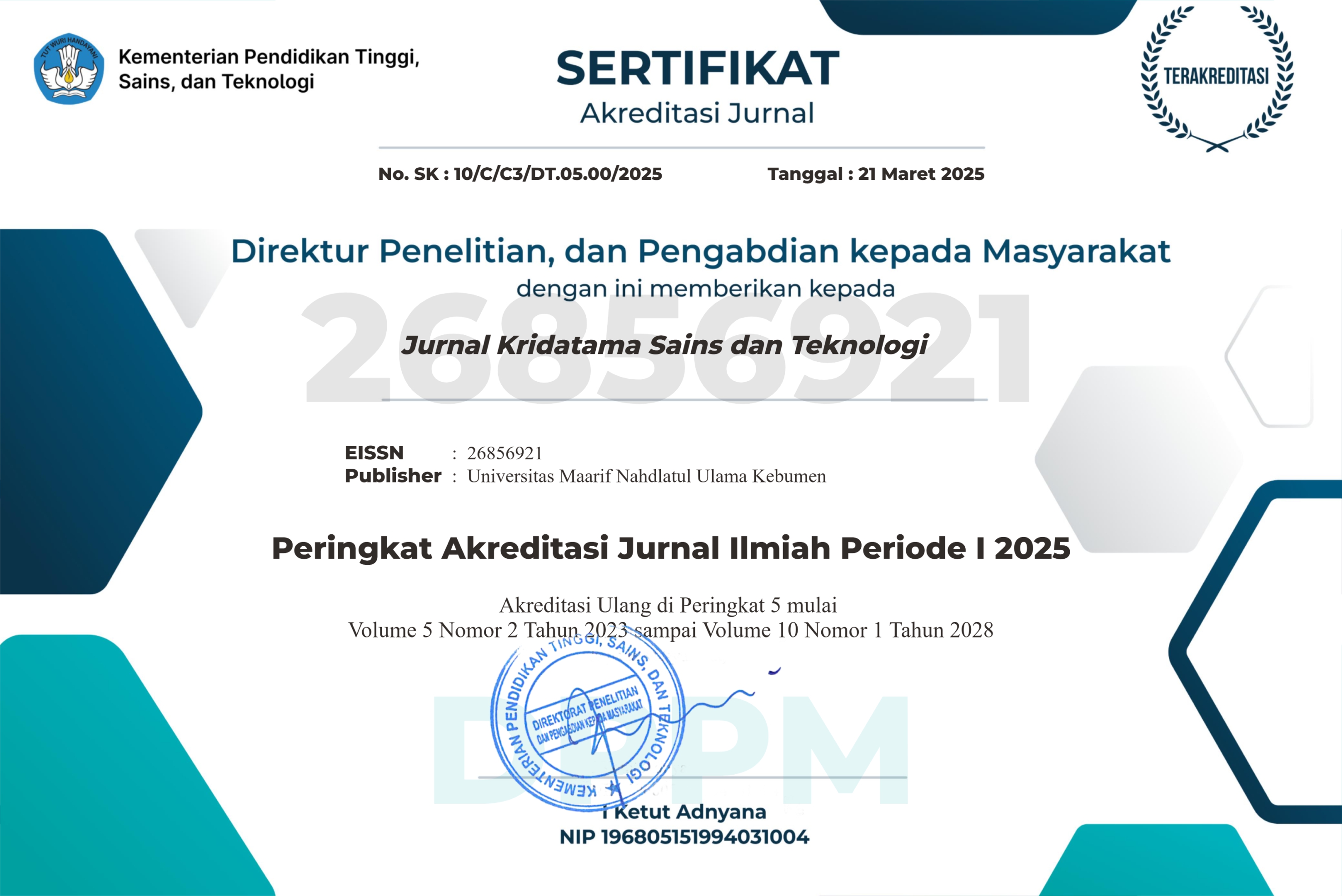Pendidikan Bahasa sebagai Upaya Membangun Generasi Unggul di Era Digital
DOI:
https://doi.org/10.53863/kst.v6i01.1077Keywords:
Superior Generation; Character buildingAbstract
Language education in the context of the digital era is a strategic effort to build a superior generation. In this era, language skills are no longer only related to verbal communication, but also include digital literacy and understanding bold content. language education in developing effective, critical and creative communication skills amidst the abundant flow of digital information. One of the main challenges in the digital era is how to integrate the use of technology in language learning without eliminating traditional values. Through an inclusive and innovative approach, language education is an alternative to help the younger generation to become independent thinkers, able to explore and interpret various sources of information wisely, and participate actively in a digitally connected global society. The aim of this research was to described language education as an effort to build a superior generation in the digital era. The method used in this research is literature study. The results of this research show that language education has an important role in forming a superior generation in the digital era. Through language education, individuals can develop communication skills, content understanding, and literacy skills that are much needed in an ever-evolving digital environment. With a strong understanding of language, future generations can utilize technology wisely, generate and analyze information critically, and participate actively in a variety of global contexts.
References
Bahri, S. (2015). Implementasi Pendidikan Karakter dalam Mengatasi Krisis Moral di Sekolah. TA’ALLUM, Vol 03. No.
Devianty, R. (2017). Peran Bahasa Indonesia dan Bahasa Daerah dalam Pendidikan Karakter. Pendidikan Ilmu Sosial Dan Budaya, 1(2).
Handayani, Ni Nyoman Lisna, Ni Ketut Erna Muliastrini, Putu Bayu Ariska Putra Gotama, and N. M. K. (2021). Pembelajaran Era Disrupsi Menuju Era Society 5 . 0 (Telaah Perspektif Pendidikan Dasar). Jurnal Lampuhyang, 12, no. 1, 79–91.
Hartiyani, E. S., Santoso, G., & Rantina, M. (2023). The Parable of The Mexican Fisherman?: Ambang Batas Merasa Cukup?? . . Jurnal Pendidikan Transformatif ( Jupetra ), 2 (2), 79–84.
Januszewski, A. (2008). Educational Technology: The Development of a Concept. Educational Technology, 48(3, 24–30.
Jefrit Johanis Messakh, Esti Regina Boiliu, Djoys Anneke Rantung, L. N. (2023). Peran Pendidikan Agama Kristen dalam Membangun Moderasi Beragama di Era 5.0. Jurnal: Educatif, Vol 5 (5).
Mukarromah, E. (2017). Inovasi Pendidikan dalam Revolusi Industri 4.0. Jurnal Pendidikan Dan Kebudayaan, 23(4), 505–516.
Nisa, U. (2018). Pengembangan Buku Literasi Berbasis Kebudayaan Tidung Kalimantan Utara dalam Pembelajaran Bahasa Indonesia di SMPN 2 Tarakan. Skripsi. Universitas Borneo Tarakan.
Rahmawati, A. (2023). Keragaman Genetik Varietas Kelapa Sawit (Elaeis guineensis Jacq.). Jurnal Kridatama Sains Dan Teknologi, 5(01), 35–40. https://doi.org/10.53863/kst.v5i01.677
Sugiyono. (2018). Metode Penelitian Kuantitatif, Kualitatif R&D. Alfabeta.
Wardani, K.D.K.A. Gosong, M dan Artawan, G. (2013). Sikap Bahasa Siswa Terhadap Bahasa Indonesia: Studi Kasus di SMA Negeri 1 Singaraja. Pendidikan Bahasa Universitas Pendidikan Ganesha, Vol. 2. 4.
Zamroni. (2007). Faktor-Faktor yang Mempengaruhi Kualitas Pendidikan. Pendidikan Indonesia, 5(1, 45–58.
Downloads
Published
How to Cite
Issue
Section
License
Copyright (c) 2024 Gresye Karunia Rumodar,Jefrit Johanis Messakh,Lamhot Naibaho

This work is licensed under a Creative Commons Attribution-ShareAlike 4.0 International License.
Authors retain copyright and grant the journal right of first publication with the work simultaneously licensed under a Creative Commons Attribution-ShareAlike 4.0 International License that allows others to share the work with an acknowledgment of the work’s authorship and initial publication in this journal

















